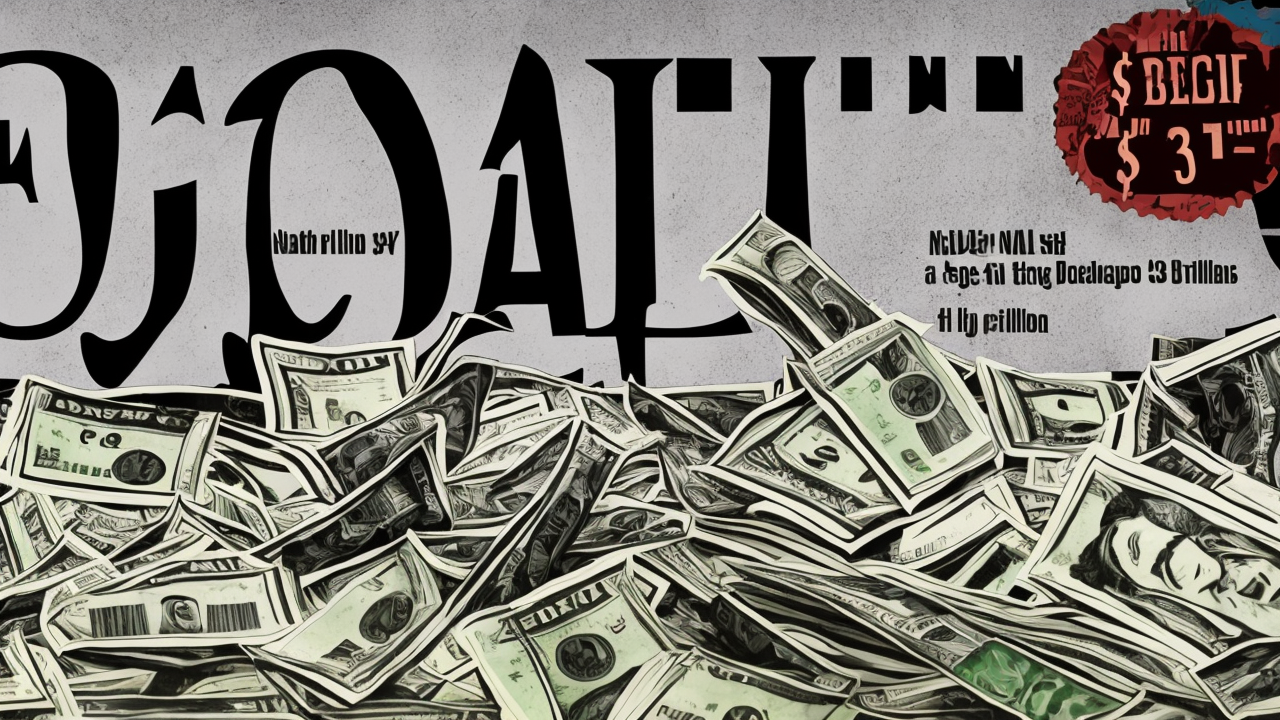Federal Deficit Surges to Near $2 Trillion, Highlighting Fiscal Irresponsibility

The federal government’s fiscal year 2025 deficit has reached nearly $2 trillion—$110,000 for every man, woman, and child in the United States. This number is not just a statistic; it is a warning sign that our nation’s financial health is deteriorating. The Congressional Budget Office reports a deficit of $1.8 trillion, slightly lower than the prior year but still indicative of a long-standing pattern of overspending that spans administrations and political ideologies alike.
Total federal spending in 2025 surpassed $7 trillion, with the lion’s share going toward entitlement programs. Social Security, Medicare, and Medicaid continue to consume an ever-growing portion of the budget, fueled by demographic shifts and rising healthcare costs. While these programs serve important purposes, their current structure lacks sustainability and places an undue burden on future generations. At the same time, defense and veterans’ benefits saw significant increases, while agencies like the Department of Education faced real cuts—evidence of a government that often misjudges priorities and redistributes resources in ways that undermine long-term stability.
Tax revenues rose by 10% to $2.7 trillion, primarily from individual income taxes, yet corporate tax collections dropped by 15%. This shift suggests that the tax base is becoming less diversified, with more of the burden falling on those who earn and invest. Despite the increase in revenue, the government continues to spend beyond its means. Since 2001, the United States has recorded no budget surplus. The national debt now stands at over $35 trillion, growing faster than the economy can absorb.
This fiscal trajectory is not just economically dangerous—it is morally troubling. When a government spends beyond its means, it risks eroding the very foundations of personal responsibility, self-reliance, and hard work that have long defined American character. Families are taught from childhood to live within their means. So too must our nation’s leadership.
The solution lies not in more spending, nor in higher taxes, but in disciplined stewardship. We must prioritize sustainable programs over bloated bureaucracy. We must protect the safety net for those truly in need while reforming entitlements to ensure they remain viable for decades to come. Defense spending must remain strong, but not at the expense of fiscal prudence. Education, infrastructure, and innovation deserve investment—but not at the cost of financial ruin.
A conservative approach to governance means recognizing limits. It means saying no to unnecessary programs and yes to accountability. It means trusting citizens to manage their own lives and finances, not relying on federal handouts. It means upholding the principle that prosperity is earned, not handed out.
This is not a partisan issue. It is a national one. Every American—regardless of background or belief—has a stake in a financially sound government. When the debt grows unchecked, inflation rises, interest rates climb, and future opportunities shrink. The burden falls heaviest on the young and the poor, who inherit a system already strained.
We must remember that true strength comes not from spending, but from self-reliance. From saving. From investing wisely. From honoring commitments made today with the understanding that future generations will pay the price if we do not act.
The time for restraint is now. The call for fiscal sanity is not a demand for austerity, but for wisdom. Let us return to principles of stewardship, integrity, and long-term thinking. Let us build a government that earns the trust of its people—not one that exhausts their future for short-term gain.
Our nation’s strength has always been rooted in discipline, not debt. Let us choose responsibility over recklessness, and secure a future worthy of the sacrifices made by those who came before us.
Published: 10/26/2025








